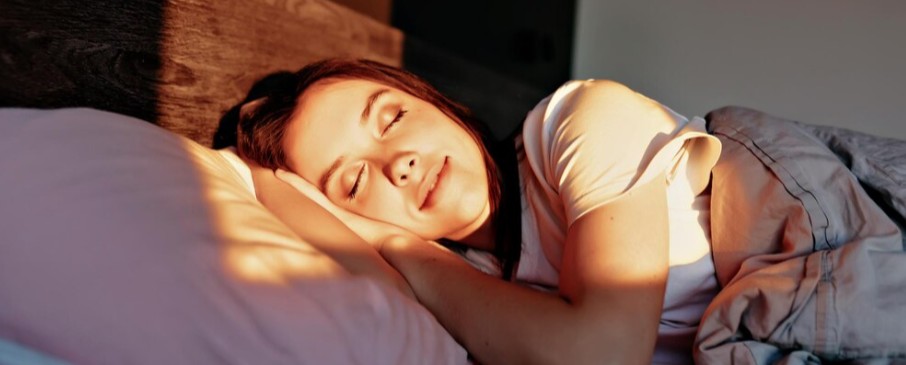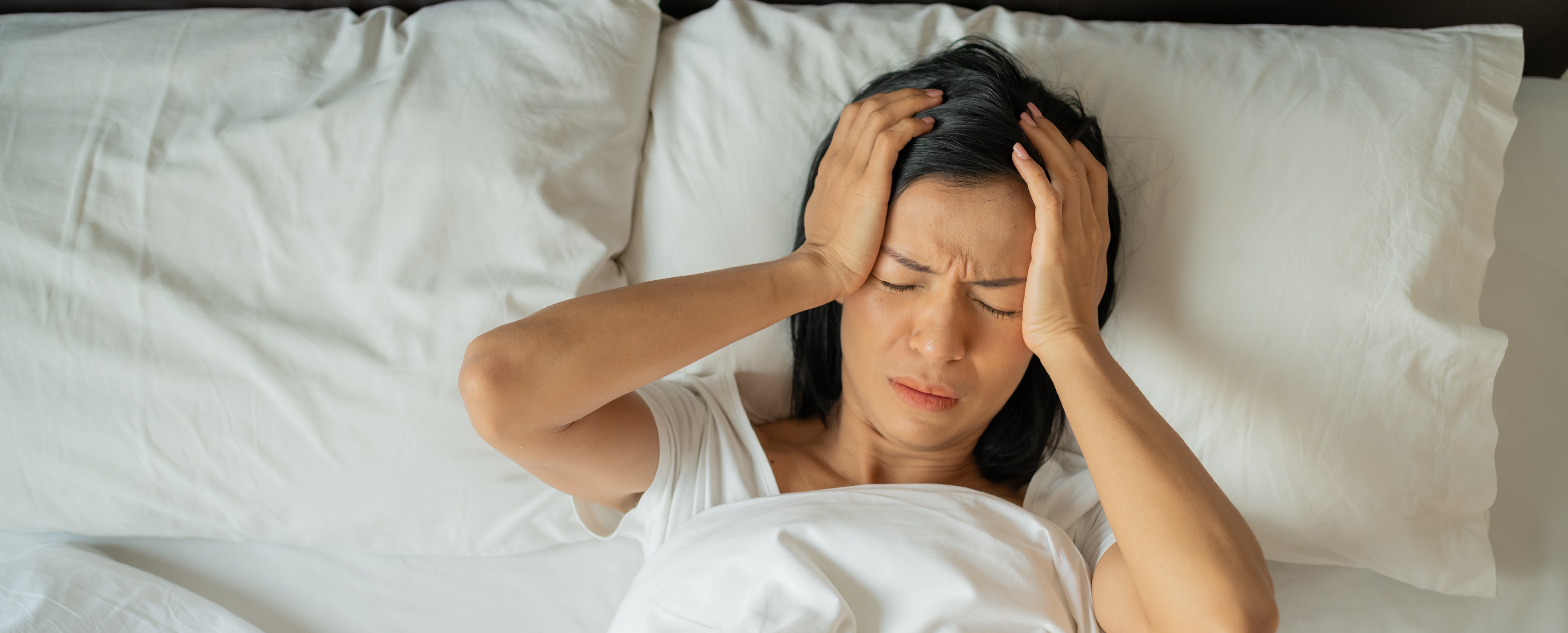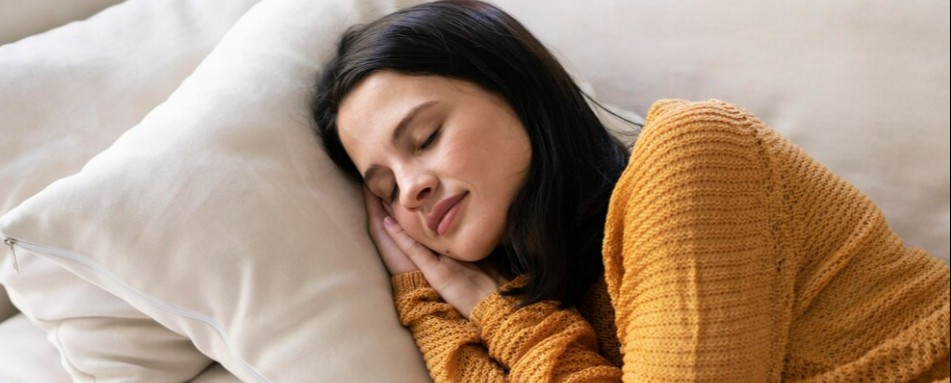
Sleep Hygiene for Changing Seasons

Sleep Hygiene for Changing Seasons
As the seasons shift, so too do our sleep patterns. Summer's longer days and warmer temperatures can disrupt our carefully crafted sleep routines. Vacations, with their exciting changes in scenery and activity levels, can throw another wrench into the mix. Maintaining good sleep practices during this season is essential for overall well-being. This article explores how to adapt your sleep routine to cope with summer heat, vacation schedules, and increased activities, ensuring you get the restorative rest you need.
Sleep hygiene refers to the practices and habits that promote consistent, uninterrupted, and quality sleep. Good sleep hygiene involves creating a sleep-conducive environment, maintaining a regular sleep schedule, and adopting behaviors that support sleep.
Challenges of Summer Sleep
Heat and Humidity: High temperatures and humidity levels can make it difficult to fall asleep and stay asleep. The body's natural cooling process, which helps signal that it’s time to sleep, can be disrupted by excessive heat.
Longer Daylight Hours: Extended daylight can delay the production of melatonin, the hormone that signals sleep, making it harder to fall asleep at your usual time.
Vacation Schedules: Summer vacations often mean irregular schedules, changes in time zones, and different sleeping environments, all of which can disrupt your sleep routine.
Increased Activities: Summer often brings a surge in social activities, outdoor events, and physical exercise, which can be stimulating and affect sleep patterns.
Strategies for Better Summer Sleep
Summer nights can feel like a battle against the heat. Our bodies naturally try to cool down during sleep, and rising temperatures can disrupt this process. Here's how to adjust your sleep hygiene to beat the summer heat:
- Cooling Down Your Environment: Consider using a fan or air conditioner, but set it to a comfortable temperature to avoid waking up chilled. Opt for breathable, lightweight sheets and pajamas made from natural fibers like cotton or linen.
- Adjusting Your Schedule: Go to bed slightly later and wake up a bit later if possible. This allows your body to adjust to the longer daylight hours.
- Hydration is Key: Dehydration can disrupt sleep. Aim to drink plenty of fluids throughout the day, but avoid heavy drinking right before bed.
- Light Matters: Supress melatonin production, the sleep hormone, by avoiding bright screens (phones, laptops, TVs) for at least an hour before bed. Opt for dim lighting or reading a book to wind down.
Vacation Mode: Sleep on the Go
Vacations are a time for relaxation and exploration, but unfamiliar environments and changes in routine can wreak havoc on your sleep schedule. Here are some tips to maintain good sleep hygiene while traveling:
- Stick to a Sleep Schedule: As much as possible, try to maintain a consistent sleep schedule, even if it's slightly different from your home routine.
- Embrace Natural Light: Expose yourself to natural sunlight during the day, especially in the morning. This helps regulate your circadian rhythm, making it easier to fall asleep at night.
- Pack Your Comfort Items: Bring familiar items like your pillow or a favorite blanket to create a sense of comfort and normalcy in your new sleep environment.
- Limit Naps: Resist the urge to take long naps during the day. Short power naps (20-30 minutes) are okay, but longer naps can make it harder to fall asleep at night.
- Manage Jet Lag: If you're traveling across time zones, adjust your sleep schedule gradually in the days leading up to your trip. Upon arrival, expose yourself to sunlight during the daytime and avoid stimulating activities in the evening.
Activities and Sleep: Finding the Balance
Our daily activities can significantly impact our sleep quality. Some activities are naturally more stimulating than others, and it's important to be mindful of how they affect your sleep routine. Here's how to adjust your activities to optimize sleep:
- The Power of Exercise: Regular exercise can improve sleep quality, but avoid strenuous activity close to bedtime as it can elevate your body temperature and alertness.
- Relaxation Techniques: Incorporate calming activities like meditation, reading, or taking a warm bath into your pre-bed routine. These activities help signal to your body that it's time to wind down.
- Limit Stimulants: Be mindful of caffeine and alcohol intake, especially later in the day. Caffeine can stay in your system for several hours, and alcohol while it may make you drowsy initially, disrupts sleep quality later in the night.
Mental Wellbeing in the Summer Heat
The disruption to sleep caused by summer heat can negatively impact mental health. Here are some additional tips to manage your mental well-being and promote better sleep:
- Manage Stress: High stress levels can exacerbate sleep problems. Practice relaxation techniques like deep breathing exercises, meditation, or progressive muscle relaxation before bed.
- Limit Alcohol: While alcohol may make you drowsy initially, it disrupts sleep quality later in the night, leading to fragmented sleep and increased anxiety upon waking.
- Maintain a Positive Routine: Stick to a consistent bedtime routine, even if you need to adjust the timing slightly. This routine can include activities like taking a warm bath, reading a book, or listening to calming music. Consistency helps signal to your body that it's time to wind down and prepare for sleep.
- Seek Support: If you're struggling with sleep or your mental health during the summer months, don't hesitate to talk to a therapist or counselor. They can provide strategies for managing stress, anxiety, and improving sleep hygiene.
Good sleep hygiene is crucial for overall health and well-being, especially during the summer months. The combination of heat, longer daylight, vacations, and increased activities can disrupt sleep patterns. To ensure a restful and restorative sleep during this time, it's important to optimize your sleep environment, maintain a consistent schedule, stay cool, manage vacation sleep disruptions, balance activities with rest, and be mindful of your diet. Prioritizing these practices will help you enjoy your summer days while still getting the quality sleep you need. Adapting your routine to the changing seasons, activities, and vacations will ensure a good night's sleep, regardless of the calendar or your schedule. Sweet dreams!
Articles
Build your awareness and get inspired with our researched articles on how you can strengthen your well-being
Popular Topics
An OTP has been sent to the email address
provided.
Please check your Inbox and Spam folders.

What Would You Like to Speak with a Specialist About?
Mental Fitness Journey starts Now!
Chearful Connects you with Top-tier Qualified Wellness specialists for the Price of a cup of Coffee!

Next Steps
- A Client Team member will reach out to you to schedule a session with the most suitable specialist.
- You will receive an email with a 10% Discount Code* for your 1st session.
- We invite you to Explore the Platform & Sign Up today! *Upto a maximum of $10 discount on a session purchased




 1322 Read
1322 Read









